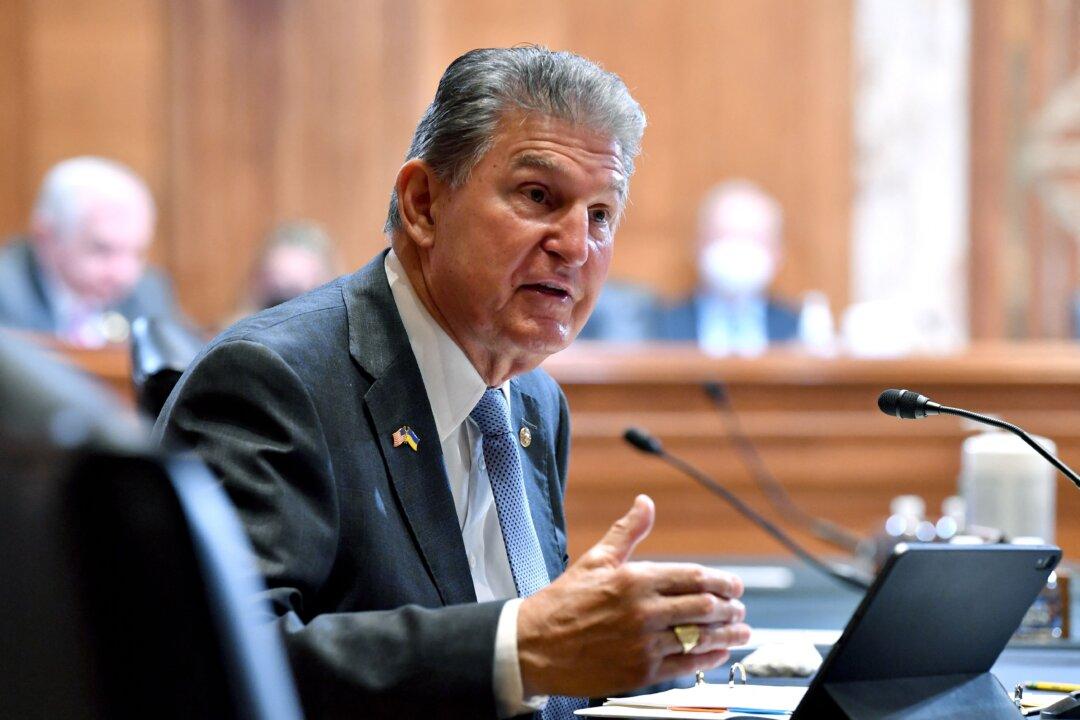Sen. Joe Manchin (D-W.Va.) decried his colleagues for playing “toxic tribal politics” as the West Virginia Democrat continues to face opposition from members within both parties to a scheme to loosen regulations on fossil fuel permitting.
Manchin’s proposal would make it easier for new fossil fuel ventures to receive a federal green light. Currently, these ventures can take years to kick off due to federal red tape and stringent environmental regulations.





